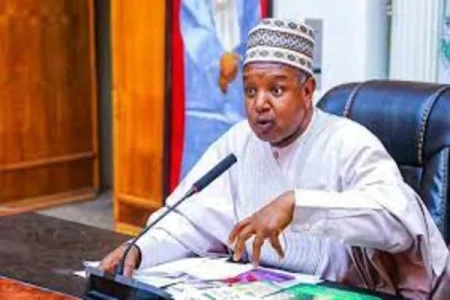
The Nigerian government has apologized for the economic hardship faced by citizens due to its reforms, such as the naira's devaluation and soaring inflation. However, the administration defended its policies, stating they are necessary to restore macroeconomic stability, attract investment, and spur long-term growth.
In a candid address to the nation, the Nigerian government acknowledged the economic hardship faced by millions of citizens due to its wide-ranging reforms but staunchly defended the policies as necessary for the country's long-term prosperity.
Speaking at a ministerial sectoral update in Abuja, the Minister of Budget and Economic Planning, Atiku Bagudu, expressed remorse for the difficulties caused by the administration's economic measures. "I apologize for the pains that they (policies) may occasion, but they are necessary," he stated.
The apology comes as Nigerians grapple with the aftermath of the government's reforms, including a plummeting naira, which has plunged from around N460 to a staggering N1,480 against the dollar, and soaring inflation, which reached 33.69 percent in April 2024, up from 22.22 percent a year prior.
Despite the economic turmoil, Bagudu insisted that the Tinubu administration's "Renewed Hope Agenda," centered around eight priority areas, is on the right track to spur growth in the economy. "Is our strategy right? Absolutely. We believe our strategy is right, but it requires occasional calibration," he asserted.
The minister argued that restoring macroeconomic stability is crucial to attracting investment and generating revenues to address underinvestment in sectors such as security, education, and social welfare. He portrayed the current economic challenges as necessary pains accompanying an overdue economic restructuring.
"Nothing we do can solve the problem of underinvestment without restoring a macro-economy that can stimulate investment," Bagudu said.
Meanwhile, the Secretary to the Government of the Federation (SGF), Senator George Akume, highlighted the administration's efforts to revive the economy and implement social programs to lift citizens during its first year in office. Akume cited policies that have attracted foreign investment and spurred job creation across various sectors, including the dismantling of monopolistic control over electricity through the 2023 Electricity Law, allowing states, corporations, and individuals to generate, distribute, and transmit power.
He also hailed the removal of the contentious fuel subsidy as a "challenging but necessary" step to curb corruption, and inefficiency, and reduce the annual fiscal burden on the government. Despite the challenges, Akume commended President Tinubu for his "calm, unwavering commitment and resilience" in serving Nigerians with diligence.
The administration remains focused on implementing its "Renewed Hope Agenda" centered on economic revitalization, social inclusion, and infrastructural progress for the betterment of all Nigerians, he stated, calling for collective efforts towards unity, peace, and realizing the country's full potential through the government's vision and policies.




